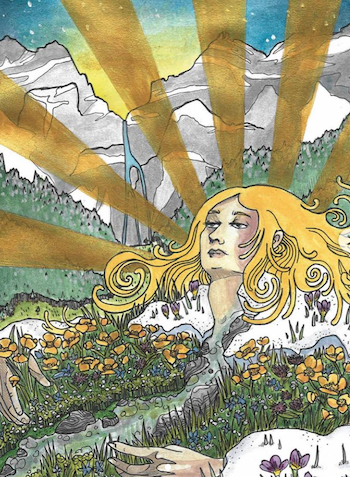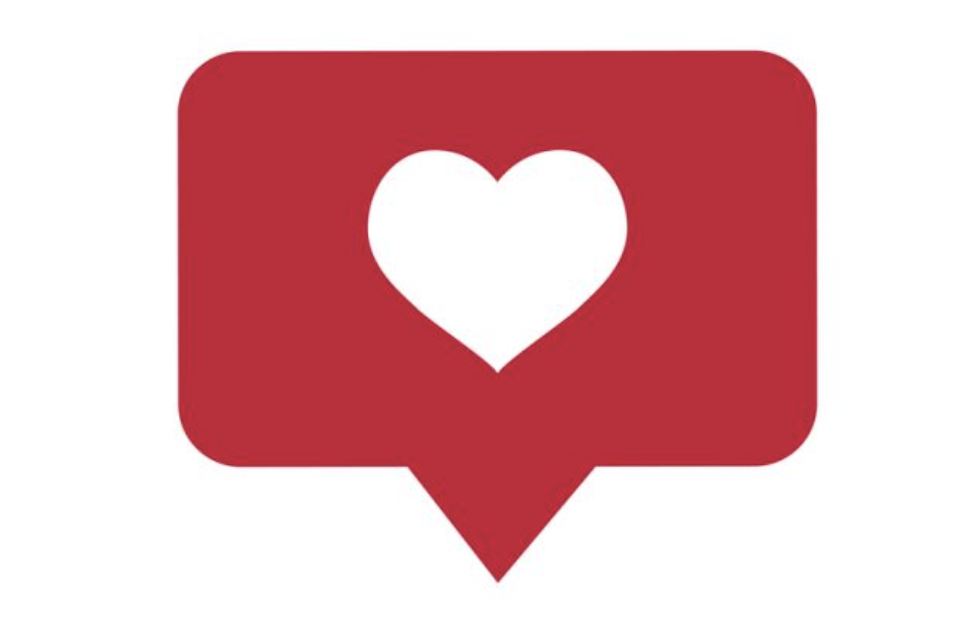Wine and humility. Is this some sort of new delicious pairing combo like Sauternes and Roquefort or Savennières and salmon? Which red would accompany the humblest of pies? Or is it a philosophical counterpart to architecture and morality? Or when you hear the words ethical and culture combined, do you reach for your browning…Rioja?

No, the subject allows us a swift hobbyhorse trot around the world of wine to laud the good, and call out the bad and the ugly examples of human behaviour. Wine itself might be as innocent as a smoothie (and the dirtier the wine the more innocent it is as we natty wine aficionados know). If we, as individuals, respond to wine (the drink) by removing our egos from the judgement equation, and in a similar sense, if vignerons view their role as respecting nature, channelling the voice of the vineyard and the land, by not superimposing winemaking methodologies, then wine might fulfil its status as humble, unpretentious drink in every sense. If only that were true though!
Wine has long been associated with hierarchies (qualitatively speaking) and class. Over many millennia, the drink qua drink performed many functions, ranging from medicinal to celebratory to quenching a thirst. Nowadays, wine is a billion-dollar industry (valued somewhere between $333 and $413 billion, depending on whose figures you believe). Wine is available to all and there is almost infinite choice. It has become democratised, if you will. For all that, and maybe because of that, the industry is still beset by snobbery and reverse snobbery, and throbs with ego and judgementalism.
Snobbery has little to do with wine and a lot to do with oneupmanship.
Wine has long been associated with hierarchies and class…Nowadays, wine is a billion-dollar industry. Wine is available to all and there is almost infinite choice. It has become democratised, if you will. For all that, and maybe because of that, the industry is still beset by snobbery and reverse snobbery, and throbs with ego and judgementalism.
The earlier stages of the dinner had worn off. The wine lists had been consulted, by some with the blank embarrassment of a schoolboy suddenly called upon to locate a Minor Prophet in the tangled hinterland of the Old Testament, by others with the severe scrutiny which suggests that they have visited most of the higher-priced wines in their own homes and probed their family weaknesses. The diners who chose their wine in the latter fashion always gave their orders in a penetrating voice, with a plentiful garnishing of stage directions. By insisting on having your bottle pointing to the north when the cork is drawn, and calling the waiter Max, you may induce the impression on your guests which hours of laboured boasting might be powerless to achieve. For this purpose, however, the guests must be chosen as carefully as the wine.
–The Chaplet – Saki (H.H. Munro)
As soon as critics and other opinion-formers append a value to any product then that creates the preconditions for “snob value”. There is no harm judging a wine good or bad by your standards, but to put one’s adherence to hierarchical standards in front of the wine, because it demonstrates that you understand what good taste is (in other words, following the taste code reflects well on you) is more to do with ego than taste.
You Can’t Always Get What You Want: Adversarial Business Practice versus The Golden Rule
As in any walk of life, human nature being what it is, one may encounter individuals in all sectors of the wine trade with a deep sense of entitlement. Entitlement is when your position or reputation, makes you expect special treatment or extra respect.
Entitlement, for example, might mean a grower believing his/her publicity and feeling that their wines should sell on the basis of reputation alone. (That reputation having been garnered in the court of critical opinion). A craftsperson with integrity, for example, might enjoy such acclaim or deprecate, but would put a much greater value on relationships with their suppliers. Others, however, seem to be more interested in protecting their commercial interests and will gravitate towards those who stroke their egos and make extravagant promises. Given that a grower is dependent on the vagaries of nature, the whims of the market and the goodwill of the buying public, it seems odd that any individual would not understand that reputation is something that has to be constantly earned rather than taken for granted and that if you want to maintain your position in a certain market, then you need make certain accommodations.
Entitlement would definitely describe the behaviour of the hypothetical restaurateur or retailer who insists on allocations, or prices to be set in stone, regardless of availability or the commercial pressures that drive the market. We all understand the necessity of negotiation, but that is a two-way dynamic, not one side trying to obtain something for nothing. A common negotiating tactic, alas, is to threaten to delist a supplier and their wines if they don’t agree to certain punitive terms and conditions. Supermarket buyers are particularly known for imposing one-sided contracts with their suppliers. Perish the small supplier who needs to put up their prices to survive. Or the economic travails of the producers. Price rises are a fact of life; the inevitable result of the pressure of a vintage or extra bureaucracy or the cost of living (fuel, wage costs, rent). To insist that prices cannot change in response to these pressures is to perpetuate a kind of a frenzied capitalist feeding chain, where the smaller denizens always get devoured by the ones at the top.
Fairtrade (and similar) agreements are recognition that growers and suppliers should be recompensed for their efforts and businesses based on ethical trading. Such practices should be the norm, written into statute.
Given that a grower is dependent on the vagaries of nature, the whims of the market and the goodwill of the buying public, it seems odd that any individual would not understand that reputation is something that has to be constantly earned rather than taken for granted and that if you want to maintain your position in a certain market, then you need make certain accommodations.
There is nothing new in all this. Why doesn’t the system collapse under such tensions? The lure of high turnover creates unequal relationships between institutional buyers and small suppliers. Suffice to say that big wine companies will pay the piper to acquire the turnover and use investment and a sizeable marketing budget to achieve this. Smaller companies will almost invariably lose out on contracts to larger ones that can fund such deals. Such is the way of the commercial world. It is increasingly common, for example, for large restaurant groups to auction off business supply to the higher bidder. This often entails cash up front, or funding installation projects (bars, cellars, kitchens). The more this becomes a fact of life, the more food and beverage managers expect such blandishments. The quality of wines, by definition, in these establishments suffers, and sommeliers who would love the freedom to put the wines they enjoy selling on their lists, are hamstrung.
What has this to do with humility and wine? Business is transactional by nature. A responsible and responsive buyer would try to understand the viewpoint and the business needs of the individual or the company that they are buying from. The relationship would be based on partnership, excellent communication and service. Relationships, like people themselves, are assets to any business, and their enhancement underpins the very golden rules of business.
The purchaser may possess the whip hand in the buy/sell transaction but that does not make them entitled to behave like bandits. Without good diligent suppliers who can make a living, their own business is the poorer. Society is the poorer.
It is not difficult to treat people with respect. In Our Mutual Friend, Mr Boffin uses the expression: “Scrunch or be scrunched.” In other words, I will do unto others, before they can it unto me. The assertion of power and privilege by one party over another does not make for a better or more efficient business environment. It causes offence. It amplifies inequalities.
Relationships, like people themselves, are assets to any business, and their enhancement underpins the very golden rules of business.
There but for the grace of God go I. It is noticeable that in times of crisis people can forget their own self-interest and rally round to help others. During the pandemic, there were countless instances of generosity. One good deed did literally beget other ones.
Social Media Narcissism
This is very trivial, but sometimes you have to scratch the itch. We’ve all heard the expression, coined by Marshall McLuhan, that the medium is the message. Building a following and burnishing one’s image on social media is a full-time job for some (in other times, society papers were used to massage the reputation of certain people). The medium is as an echo chamber, both reflecting and then amplifying the vanity of its users. Some individuals in the wine world have made a commercial art form out of self-promotion. Life is a selfie-stick and a cabaret, a perpetual mini movie with gurning and twerking and faux-hipster speak. Imagine if artists only ever painted flattering self-portraits. Self-promotion may or may not be the height of solipsism, but basically it is the commodification of one’s self as an influencer. Like a comet with a train of fifteen thousand followers.
Communication about wine has been shifting away from classic thoughtful journalism to gimmick-driven presentation, ostensibly to lure in the youth market and a new generation of drinkers. The shallower the presentation, the more the subject–the very idea of a wine–is dumbed down, and the medium and the presenter in that medium (and their ego) becomes the message.
There is inherently nothing wrong with this, other than that it often exemplifies a form of vulgar ambition and shallow vanity. No-one is harmed by the grandstanding of an individual, but it is symptomatic of a wider reality that those who are always “on” are heard by the biggest audience. Clickbait replaces content. This perpetual craving to be the centre of attention is a form of narcissism. It is not surprising that the sociopaths like ex-President Trump and his acolytes use social media as a bully-pulpit and dog-whistle platform. Repugnant views apart, the desire to speak loudly to as many people as possible (even the word “followers” has cultish/messianic connotations) is the manifestation of ego. Communication about wine has been shifting away from classic thoughtful journalism to gimmick-driven presentation, ostensibly to lure in the youth market and a new generation of drinkers. The shallower the presentation (and the greater focus on the presenter), the more the subject–the very idea of a wine–is dumbed down, and the medium and the presenter in that medium (and their ego) becomes the message.
Humility and ethical wine choices
Humility is the recognition of responsibility for our own behaviour.
Humility is also recognition of the efforts of others. A bottle of wine is the result of the collective effort of those who farm the vines and make the wine. Without nature’s blessing the wine would not be made either.
Relatively speaking, in the history of this planet’s existence, humans have only been around for a few seconds. We have deemed that our short-term needs as a race are paramount, even if those needs conflict with the greater good of the planet. If we wish to pass a legacy to future generations then we must respect the natural world, become stewards rather than exploiters. Practically speaking this would involve acknowledging that we as buyers and consumers must support sustainable agricultural solutions and even be prepared to pay more for the products. The future (we hope) lies in regenerative agriculture as our impact will have to be audited to achieve climatic emission targets. This will always come down to a seemingly binary choice – cheap food and drink that the masses can afford versus saving the planet. The industrial food lobby versus the small farmer. It is much more complicated than that.
Humility is also recognition of the efforts of others. A bottle of wine is the result of the collective effort of those who farm the vines and make the wine. Without nature’s blessing the wine would not be made either.
Money talks, shouts even. But consumers can band together and influence policy. They can vote with the pounds in their pockets, they can shop local or buy direct, they can vote for political parties that put environmental security ahead of short-term advantage. Subsidising industrial farming for cheap food kicks the issue into the long grass. We need to produce less not more, waste less, stop the obsession with economic growth and acquisition, and ensure that people have access to healthy, locally grown food.

Humility in this scenario is not passive. Political activism is required to bring about meaningful and necessary change. Putting the needs of nature and small communities ahead of personal gain or commercial imperative, shows a desire to act for ethical rather than selfish reasons.
Wine Epiphanies and the Unplugged Self
Humility can be an important part of how we respond to wine. Humility means subordinating one’s ego and also setting aside one’s array of critical utensils and suspending certain value judgements. For many buyers, what we get out of a wine is to do with the value that we ascribe to said wine. Wine struggles to be beautiful when material gratification is the main motivation for buying it. Remove preconceived ideas about quality and one’s ego from the tasting experience and immediately you become open-minded and open-hearted. The possibility of epiphany delicious revelation, a moment of un-selfing, when you are connected/plugged into an emotion. For that moment, the ego is sloughed and one experiences the beauty of a wine to its fullest extent.
“Nobody sees anybody truly but all through the flaws of their own egos. That is the way we all see …each other in life. Vanity, fear, desire, competition– all such distortions within our own egos– condition our vision of those in relation to us. Add to those distortions to our own egos the corresponding distortions in the egos of others, and you see how cloudy the glass must become through which we look at each other. That’s how it is in all living relationships except when there is that rare case of two people who love intensely enough to burn through all those layers of opacity and see each other’s naked hearts.”
I have said this before, but it bears repeating. Ultimately, good taste is intuitive, natural, and empathetic; snobbery is misanthropic, over-evaluative, affected. The love of anything can bring out the best or the worst in a human being. Wine, being the product of nature, should evoke happiness, laughter and good will towards other people, not drive us to distance ourselves from them because we think we understand and appreciate it more. The fact that your sense of smell is refined and that you may be able to insure your palate for a gazillion dollars is irrelevant: the literary examples of Hannibal Lecter, Des Esseintes, Jean-Baptiste Grenouille and Tarquin Winot illustrate that those who possess gilded taste buds can themselves be possessed by contempt for others. Taste – good taste – holds a mirror to your soul, and, as such, has a moral component. The way we treat people in business, our consumer choices, the way we present ourselves to others, our attitude to the environment, even the way we choose to respond to wine as a drink, affect others, to a greater or lesser extent, directly and indirectly. The call for showing humility is simply a call for thoughtfulness, empathy, understanding and ethical consideration.



Insightful and current text, which puts the finger on a bigger social problem. I see the same pattern in the equestrian world; some shout loudly, images and norms are spread and no one thinks twice. In the end no one understands why they like what they do, they do it because it is considered customary. And as for wine – let everyone drink what they want. There is a wine for everyone, and remember – if you prefer oak taste, there are people who don’t like it. So leave the VA-lovers alone and happy and we all will live in a better world. Maybe we can toast together one day!
Thanks, Lena. Well said!